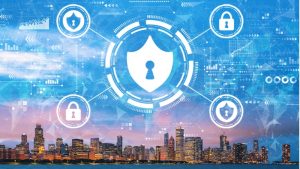The National Institute of Standards and Technology (NIST) is looking for information on the trends and future investment needs for eight emerging technology sectors to complete a study authorized in the fiscal year (FY) 2021 appropriations act, according to a request for information (RFI) posted to the Federal Register.
The Cybersecurity and Infrastructure Security Agency (CISA) has launched its Infrastructure Dependency Primer (IDP) learning tool, which aims to help state, local, tribal, and territorial planners and decisionmakers better understand how infrastructure dependencies can impact their communities and how to increase resilience.
To meet the heightened demand for unemployment insurance during the pandemic, the Ohio Department of Jobs and Family Services (ODJFS) made $477 million in fraudulent claims and $3.3 billion in overpayments, according to an audit released last week.
Data experts Eileen Vidrine, chief data officer (CDO) at the U.S. Air Force, and Jeremy Wilson, multi-factor authentication statewide program manager for the State of Texas, gathered on Oct. 19 at the Dell Technologies North America Forum to share their insights on data protection measures and the importance of keeping data secure.
State and local governments are on the front lines of delivering services and restoring trust in government. Data from a new survey report by Deloitte provides insight into driving perceptions of trust in state and local government functions.
The General Services Administration (GSA) has named Waldo Jaquith, a veteran technologist and former member of the Biden-Harris transition team, to be GSA Administrator Robin Carnahan’s senior advisor for state, local, tribal, and territorial government.
The Kansas Department for Children and Families (DCF) plans to re-platform its case management system for child support, affecting approximately 131,000 children and their parents in the state.
State and local government IT spending in the United States is projected to total near $120 billion in 2021 – up about 10 percent on a year-over-year basis – and rising to $122 billion in 2022, according to figures published by Government Technology earlier this month.
The Fire Department of the City of New York (FDNY) has launched a new computer-aided dispatch system (FireCAD) to replace its now-retired STARFIRE system, Business Wire reported. The system was launched with the help of professional services firm Accenture, which designed and developed the platform.
The much-anticipated $1 trillion Senate bipartisan infrastructure bill unveiled on August 1 shows big cybersecurity funding wins for state and local governments with a $1 billion for a cybersecurity grant program, and electric utilities that will be receiving $1.25 billion through a cybersecurity grant program to protect the electric grid.












